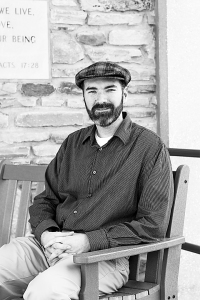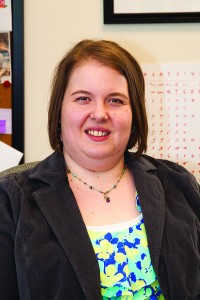I have a friend named Art Tanderup. Talkative and friendly with the kind of laugh that exemplifies a down-home joie de vivre, Art is a normal Nebraska farmer. I met Art last April in Washington DC where we both arrived to protest the Keystone XL pipeline. I came as part of a Facebook prayer band called #PrayNoKXL. Art came because the pipeline route literally runs through his backyard.
 I met another friend in DC named Greg Greycloud. Greg lives in South Dakota and is a member of the Lakota Sioux Nation. Intelligent and witty with a kind and compassionate heart, Greg leads a ministry encouraging Lakota men to embrace their roles as responsible husbands, fathers, and leaders. Greg came to DC because the pipeline route illegally crosses land that belongs by treaty to his people.
I met another friend in DC named Greg Greycloud. Greg lives in South Dakota and is a member of the Lakota Sioux Nation. Intelligent and witty with a kind and compassionate heart, Greg leads a ministry encouraging Lakota men to embrace their roles as responsible husbands, fathers, and leaders. Greg came to DC because the pipeline route illegally crosses land that belongs by treaty to his people.
What the three of us share in common is a deep conviction that the Keystone XL pipeline is a morally and ethically wrong decision. Here’s why:
The Tar Sands. The purpose of the Keystone pipeline is to transport bitumen (a thick sludge-like mixture of sand, oil, clay, and chemicals) from Alberta to the Gulf Coast for refining and export. The highly intensive process of extracting bitumen turns once lush boreal forests into alien landscapes largely devoid of life with chemical laden tailing ponds so large they can be seen from space. This devastation is not only destroying an entire ecosystem, but has also resulted in significant health impacts to Native communities living downstream.
 The Ogallala Aquifer. The Keystone pipeline runs directly over the Ogallala Aquifer—at 174,000 square miles, North America’s largest. In many places the aquifer sits just a few meters below the surface of the ground. In spite of all the modern safeguards pipelines do leak. Just last week a pipeline in Montana spilled 50,000 gallons of oil into the Yellowstone River. A leak in an Arkansas suburb spilled five times that amount in 2013, and in 2010 more than 1 million gallons of bitumen spilled into the Kalamazoo River in Michigan. The Kalamazoo leak was so devastating that 5 years and $700 million later it still hasn’t been completely cleaned up. What happens when the primary water source for our nation’s breadbasket Great Plains states becomes polluted?
The Ogallala Aquifer. The Keystone pipeline runs directly over the Ogallala Aquifer—at 174,000 square miles, North America’s largest. In many places the aquifer sits just a few meters below the surface of the ground. In spite of all the modern safeguards pipelines do leak. Just last week a pipeline in Montana spilled 50,000 gallons of oil into the Yellowstone River. A leak in an Arkansas suburb spilled five times that amount in 2013, and in 2010 more than 1 million gallons of bitumen spilled into the Kalamazoo River in Michigan. The Kalamazoo leak was so devastating that 5 years and $700 million later it still hasn’t been completely cleaned up. What happens when the primary water source for our nation’s breadbasket Great Plains states becomes polluted?
Native Treaties. Despite their protests, the pipeline route in South Dakota crosses over land legally granted to the Rosebud Sioux Nation by United States treaty. Sioux President, Cyril Scott went so far as to call Keystone “an act of war against our people.” With our country’s shameful treatment of Native Americans going back hundreds of years, shouldn’t it be time to stop breaking our treaties and start showing respect and honor to those whose land we have already taken away?
Eminent Domain. TransCanada, the foreign private corporation who owns the pipeline, is now using eminent domain to take away the land of ordinary Americans who don’t want the pipeline to run across their property. Shouldn’t private property rights be a concern of all Americans, and particularly for ideological conservatives? Shouldn’t my friend Art have the right to refuse 900,000 barrels a day of toxic bitumen running across his farm (his livelihood)?
Climate Change. Because of the highly energy intensive processes associated with their extraction, transportation, and refining, the tar sands have a much larger impact on the global climate system than does conventional oil. While oil continues to form an important part of our economy, it’s time to modernize our infrastructure by forgoing antiquated fossil energy and focusing on clean energy sources, such as wind and solar, that will always create domestic jobs, that are endlessly renewable, and that don’t harm God’s creation or his people.
Proponents of the pipeline spout all kinds of claims about jobs, but the reality is that it will only create 35 permanent jobs. 35 jobs in exchange for more broken Indian treaties, unethically enforced eminent domain, pipeline spills of toxic tar sludge, possible contamination of our country’s largest aquifer, environmental destruction, and a bleaker outlook for the global climate system. Keystone is not a political issue. It’s a common sense one.


